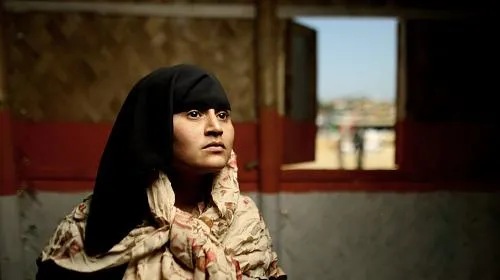WASHINGTON (June 17, 2020) – CARE applauds today’s introduction of the Keeping Women and Girls Safe from the Start Act by Senators Robert Menendez (D-NJ), Lisa Murkowski (R-AK), and Jeanne Shaheen (D-NH), a bipartisan bill that will ensure that the U.S. prioritizes the needs of women and girls in responding to humanitarian emergencies. This legislation works specifically to prevent gender-based violence (GBV), including child marriage, domestic violence and human trafficking, at the onset of a humanitarian emergency and to fully address its impacts.
David Ray, CARE’s vice president of policy and advocacy, said:
“One in five women report experiencing sexual violence in humanitarian emergencies. The COVID-19 crisis alone may cause 15 million more cases of gender-based violence globally for every three months the virus causes shutdowns. Yet, we know this staggering reality is preventable. Our humanitarian responses must support survivors and ensure that we address these horrific abuses before they happen. The world is currently witnessing the largest refugee crises in recorded history – in the midst of a pandemic – where the majority of displaced people are women and girls. It is critical that the United States make a robust commitment to address gender-based violence in its humanitarian response efforts. The Keeping Women and Girls Safe from the Start Act does just that, and we applaud Senators Menendez, Murkowski, and Shaheen for their bipartisan leadership on this critical and timely legislation.”
The Keeping Women and Girls Safe from the Start Act will codify and enhance the State Department and the U.S. Agency for International Development’s (USAID) Safe from the Start initiative, which provides training and support to address GBV in humanitarian settings, and will open greater opportunities for local organizations to play a role in protecting and empowering survivors. This bill will also give critical momentum to the U.S. Government’s work to advance prevention and response to GBV globally by making it a priority to address this issue in crisis contexts.
The House version of the bill was introduced in July 2019 by Rep. Grace Meng (D-NY), Rep. Chris Stewart (R-UT), Rep. Lois Frankel (D-FL), Rep. Mario Diaz-Balart (R-FL) and Rep. Chrissy Houlahan (D-PA).

